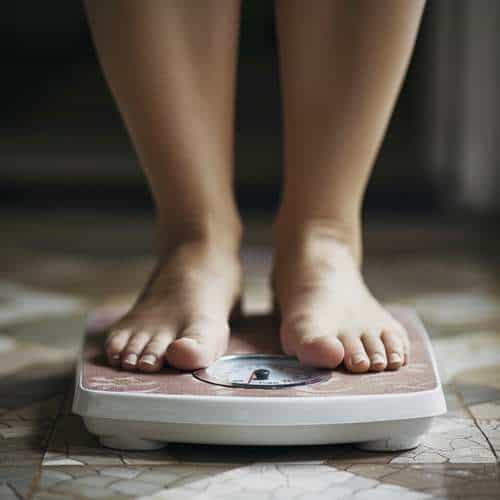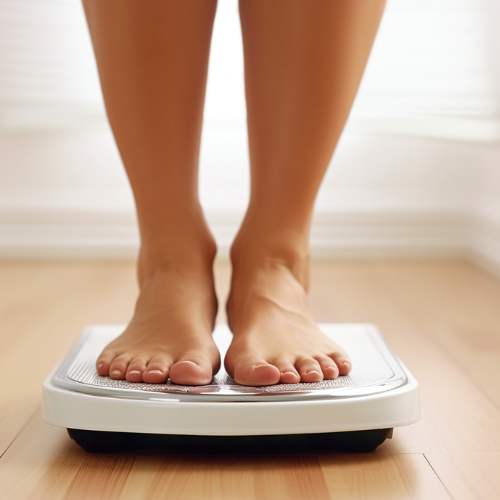Menopause and Exercise: Maximising Health Benefits During Transition
Hello! I'm Justina, a dedicated personal trainer with a special focus on helping women navigate through the transformative journey of menopause.
Having witnessed the diverse challenges of this natural phase in a woman's life, I'm passionate about empowering women to embrace menopause with strength, resilience, and positivity.
Through personalised fitness programs and lifestyle guidance, I aim to make this transition not just manageable, but also a period of growth and wellbeing.
Menopause marks a significant transition in a woman's life, characterised by the natural decline in reproductive hormones when she reaches her 40s or 50s.
Understanding menopause is crucial as it paves the way for informed decisions regarding exercise and lifestyle changes, which can significantly alleviate menopausal symptoms.

By creating personalised exercise programmes, I help women navigate through this chapter in their lives more comfortably, ensuring that the activities are enjoyable and sustainable and effectively target the symptoms of menopause.
- Regular exercise is vital to managing menopausal symptoms effectively.
- Strength training helps offset muscle mass and bone density loss.
- Personalised exercise programmes contribute to long-term well-being.
What You Need to Know About Menopause

As a personal trainer, I've learned what works by guiding many women through hormonal changes.
Menopause is defined as the end of menstrual cycles, typically occurring between 45 and 55 years of age.
This natural phase signifies a drop in oestrogen, leading to various hormonal changes.
Symptoms vary but often include:
- Hot flushes and night sweats
- Mood changes such as irritability or mild depression
- Sleep disturbances
- Vaginal dryness
- Changes in libido
During perimenopause, the period leading up to menopause, these symptoms may begin as the body's oestrogen levels fluctuate.
My role involves tailoring exercise routines to alleviate menopausal symptoms, focusing on mental well-being and heart health. Regular physical activity can mitigate mood swings and improve mental health, while certain exercises support bone density, countering the risk of osteoporosis.
Remember, although menopause can be challenging, with personalised plans and support, it is possible to maintain a positive quality of life through the transition.
Exercise Benefits for Menopausal Women

Depending on your personal goals, these are the types of exercises we would focus on.
Cardio and Heart Health
Incorporating regular aerobic activity into your routine is crucial to support your cardiovascular system during menopause. Activities like brisk walking or swimming can help maintain a healthy weight, reducing the risk of heart disease – an important consideration since menopause can increase heart-related risks.
Strength Training and Bone Density
Strength training is not just about building muscle; it directly combats bone density loss, a prelude to osteoporosis, common in menopausal women. Engaging in resistance training exercises such as lifting weights or using resistance bands can help maintain bone health and muscle mass.
Flexibility and Balance Exercises
Practices like yoga, Pilates, and tai chi enhance flexibility and balance, both of which can decline during menopause. These exercises also play a role in preventing falls and injuries by strengthening core muscles and enhancing overall stability.
Mental Wellbeing and Stress Relief
Exercise stimulates the production of endorphins, which can elevate your mood, thereby helping to alleviate symptoms of depression and anxiety that might emerge during menopause. Through regular exercise, whether it be a calming yoga session or a high-energy aerobics class, many of my clients report reduced mood swings, lower stress levels, and increased energy.
Designing an Effective Exercise Programme

As a personal trainer specialising in menopause management, I do understand the importance of tailoring an exercise programme that helps maintain a healthy weight and promotes overall well-being.
Now, let's look into how to create an exercise plan that addresses the specific needs of menopausal women.
Types of Exercise to Include
In my practice, I encourage a balanced mix of cardiovascular exercises, such as brisk walking, cycling, and swimming, to support heart health and manage weight.
It is crucial to incorporate resistance activities like weights or Pilates that support muscle mass, alongside workouts for flexibility like yoga and tai chi. HIIT can be beneficial for some, but should be approached with caution—always listen to your body.
- Cardio: 150 minutes per week of moderate-intensity, or 75 minutes of vigorous-intensity aerobic physical activity, or an equivalent combination.
- Strength Training: At least two days a week, focusing on all major muscle groups.
- Flexibility and Balance: Yoga or tai chi sessions twice a week enhance mobility and reduce fall risk.
Setting Realistic Goals
My clients' successes often come from setting achievable goals that foster a sense of accomplishment.
Begin by setting small, weekly targets, such as including a 30-minute walk or a bodyweight exercise session.
Progress can be measured by how you feel, improvements in strength, endurance, and the ability to manage menopause symptoms like hot flushes.
Tracking your heart rate can also indicate fitness improvements, always aiming to work within an ideal range.
- Short-term: Add one new exercise type each week.
- Mid-term: Aim for a consistent routine with at least three different exercise modalities.
- Long-term: Establish regular exercise as a non-negotiable part of your lifestyle.
Working with a Healthcare Professional
Before you start, I recommend consulting a healthcare professional who can provide guidance tailored to your physiological needs.
They might suggest specific exercises as treatments for menopause symptoms or caution against certain types of physical activity due to individual health concerns.
I always consider doctor or GP recommendations with my clients and create bespoke programmes that respect these directives and complement other lifestyle changes.
- Consultation: Always check with your GP before starting any new exercise regime.
- Personalised Plan: Collaborate with healthcare providers to craft a plan that accommodates any medical advice or treatments.
Implementing these structured approaches to crafting an exercise programme can lead to enhanced well-being during menopause.
Whether in the gym or at home, ensuring that each session is tailored to your needs and capabilities is key to success and longevity in maintaining an active lifestyle.
Lifestyle Considerations and Support

I focus on holistic approaches that encompass both physical fitness and lifestyle adjustments. By integrating tailored exercise regimes with nutritional guidance and sleep management, my clients can more effectively manage menopausal symptoms.
Dietary Adjustments
Diet plays a crucial role in managing menopause symptoms. I recommend:
- Balanced meals: Emphasise a diet rich in fruits, vegetables, whole grains, and lean proteins. Ensuring meals are balanced can help maintain a healthy weight and support heart health.
- Calcium and Vitamin D: Include foods fortified in calcium and vitamin D or consider supplements to maintain bone strength and reduce the risk of osteoporosis.
- Hydration: Keeping well-hydrated alleviates symptoms like vaginal dryness.
- Reduced alcohol: Limiting alcohol intake can help manage blood sugar levels and reduce the risk of type 2 diabetes.
- Limited stimulants: Cutting back on caffeine can improve sleep patterns and reduce fatigue.
Sleep Quality and Patterns
Sleep can be significantly disrupted during menopause, affecting overall well-being:
- Establish regular sleep patterns: Going to bed and waking up at the same time every day helps regulate your body's internal clock.
- Create a restful environment: Ensure your bedroom is cool, dark, and quiet to promote uninterrupted sleep, which is crucial for cardiovascular health and managing fatigue.
- Consider sleep aids: If sleep disturbances are severe, a gel designed for menopause symptom relief might be beneficial, but always consult a healthcare provider first.
I guide my clients to adopt these lifestyle changes that complement their personalised menopause exercise programs, which can mitigate risks of developing breast cancer, type 2 diabetes, and cardiovascular diseases, while improving quality of life during this transition.
Frequently Asked Questions

In my experience assisting women through menopause, I've identified exercise as key in managing symptoms. Here are some frequently asked questions that come up during my coaching sessions.
What kind of physical activity is recommended to alleviate symptoms associated with menopause?
Despite individual preferences, I suggest a combination of cardiovascular activities like brisk walking or swimming and low-impact exercises such as yoga or Pilates. These activities can help reduce hot flashes and improve mood by releasing endorphins.
Can certain exercises worsen menopause symptoms, and if so, which should be avoided?
High-intensity workouts may exacerbate hot flashes or lead to more fatigue. It's pivotal to listen to your body and, if necessary, opt for moderate activities that maintain fitness without overwhelming the system.
How does strength training influence menopausal changes, and what are the best practices?
Strength training is beneficial as it counters bone density loss and maintains muscle mass. I advise focusing on major muscle groups twice weekly, using challenging yet manageable weights to complete sets with proper form.
In what ways can regular exercise impact abdominal weight gain during menopause?
Regular exercise, especially aerobic and strength training, can combat abdominal weight gain by increasing metabolism and reducing visceral fat. I encourage consistency and patience, as results may take time to manifest.
What dietary and exercise guidelines should be followed during the perimenopausal phase?
During perimenopause, it's crucial to pair regular exercise with a balanced diet rich in calcium and vitamin D. Aim for at least 150 minutes of moderate aerobic activity weekly, complemented with strength training.
What evidence is there to support the benefits of exercise in managing menopausal symptoms?
Numerous studies, such as those discussed on Women's Health Concern, have shown that exercise reduces the severity of menopausal symptoms, including hot flashes, sleep disturbances, and mood swings. It's a key component of a holistic approach to managing menopause.
Get in Touch
Are you ready to take control of your menopausal journey and transform it into a period of empowerment and health?
Let's work together to create a personalized plan that fits your unique needs and goals.
Contact me, Justina, for a consultation, and let's start this journey towards a happier, healthier you during menopause and beyond!
















